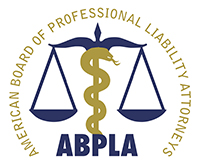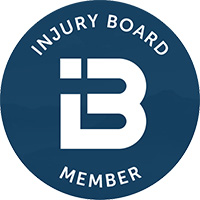
What Is Birth Asphyxia?
Birth asphyxia is a dangerous medical condition that occurs when a baby’s brain is deprived of oxygen during labor, delivery, or shortly after birth. Without adequate oxygen, babies’ brains can suffer serious damage and potentially experience long-term, irreversible consequences.
Not every case of birth asphyxia results from medical negligence. The seasoned birth injury attorneys at Mandell, Boisclair & Mandell, Ltd have substantial experience in these difficult cases. We have the knowledge, skill, and resources necessary to determine the cause of a child’s birth injury and we are committed to helping families pursue the justice and compensation they deserve to move forward.
What Causes Birth Asphyxia?
Oxygen deprivation can occur at any time during pregnancy, labor, or delivery. Some of the most common causes of birth asphyxia include:
- Delayed C-section: Emergency C-sections greatly reduce the risk of permanent damage when fetal distress is evident.
- Anesthesia errors: These errors can prevent babies from getting an adequate supply of oxygen-rich blood.
- Shoulder dystocia: This occurs when one or both of a baby’s shoulders become lodged under the mother’s pubic bone.
- Low amniotic fluid: These fluids assist in the lung development, nutrition intake, temperature, and growth of a fetus.
- Placenta previa: This is a condition in which the cervix is completely or partially covered by the placenta.
- Umbilical cord prolapse: This describes the complication in which the umbilical cord precedes a baby in delivery.
- Nuchal cord: This occurs when the umbilical cord wraps around a baby’s neck.
What Are Symptoms of Birth Asphyxia?
Babies can display symptoms of birth asphyxia differently. Before delivery, an increased acid level in the baby’s blood or an abnormal heart rate pattern may indicate a decrease in oxygen supply to the baby. If doctors or nurses are not vigilant when monitoring the mother and baby, they can miss the signs of birth asphyxia in the baby. At birth, asphyxia symptoms may include:
- Pale or blue skin color
- Low heart rate
- Lack of breathing
- Gasping or shallow breathing
- Meconium aspiration
- Weak reflexes
- Poor muscle tone
- Faint or absent cry
- Low Apgar Scores
Complications of Birth Asphyxia
When a baby does not receive adequate oxygen, he or she may experience complications such as:
- Hypoxic Ischemic Encephalopathy
- Cerebral Palsy
- Fetal strokes
- Learning disabilities
- Developmental delays
- Seizures
- Sensory impairments
- Motor disorders
What is Hypoxic Ischemic Encephalopathy?
Hypoxic Ischemic Encephalopathy (HIE) is a general term used to describe abnormal brain function due to a lack of oxygen and blood flow. When asphyxia continues for an extended period of time, brain tissue is irreversibly destroyed. HIE due to fetal or neonatal asphyxia is a leading cause of impairment and death among infants.
There are three levels used to categorize Hypoxic Ischemic Encephalopathy: Mild, moderate, and severe:
- In mild and moderate cases, children may experience seizures or have learning or feeding disorders. They may also develop brain dysfunctions such as cerebral palsy.
- In severe cases, children may exhibit one or more of the conditions mentioned above or even die as a result of their birth injury.
Treatment for HIE, typically physical therapy, focuses on helping the child adapt to symptoms that result from brain injury. Asphyxia usually causes permanent damage, which can continue to progress even after the asphyxia has been relieved.
Determining the Cause of Infant Brain Damage
Nearly half of all brain injuries that happen at birth are the result of asphyxia when the brain is deprived of oxygen. While not all birth injuries are the result of medical malpractice, many birth injuries are the result of negligence and could have been avoided by following a reasonable standard of care.
Traumatic brain injuries occur when some physical force strikes or puts pressure on the head. This can occur during childbirth if a doctor uses forceps with too much force on the baby’s head.
For 45 years, the experienced attorneys at Mandell, Boisclair & Mandell, Ltd have helped individuals and families throughout Providence in a wide range of personal injury matters, including birth injuries, spinal cord injuries, amputation injuries, and other catastrophic injuries.
This breadth of experience gives you a distinct advantage in your case. We understand the intricacies of these complex cases, and we have the background and resources needed to prove obstetrical negligence. We aren’t intimidated by big insurance companies or hospitals and we never back down from a fight.
Contact a Birth Injury Lawyer in Providence Today
The birth injury attorneys at Mandell, Boisclair & Mandell, Ltd are committed to helping families achieve the justice and compensation they deserve in these difficult cases. If your baby suffered an injury at birth, we want to hear your story.
See our results.
Call (401) 273-8330 today for a free initial consultation. We serve clients in Providence and throughout Rhode Island.





























